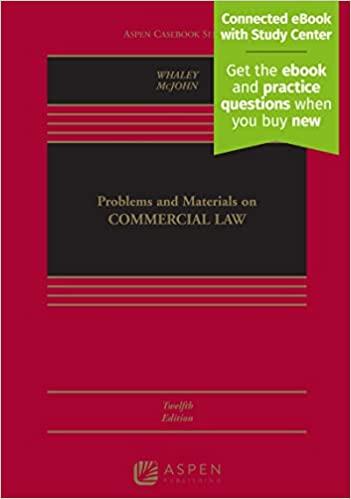Question
The scenario is someone applied for a job and lied regarding his resume the truth comes out and Enclosed are the questions. The truthwhen the
The scenario is someone applied for a job and lied regarding his resume the truth comes out and Enclosed are the questions.
The truthwhen the newspaper revealed it on a splashy front-page articlewasn't quite so overpowering:
- The claimed BS degree? According to a press officer at the University of Leeds, "We cannot find any connection in our records between Robert and the university."
- The royal wedding cake? Well, he did help pick some of the fruit that went into it.
- The knighthood? No.
- The Five Star Diamond Award? True, but it's not the AAA's prestigious Five Diamond Award or Mobil's five stars. The American Academy of Hospitality Sciences is actually a guy's apartment in New York, and the award is granted to anyone who pays a fee.
- White House chef? Kind of. But he didn't prepare sophisticated dishes for the president or anything like that; he cooked food for the cafeteria line, serving military workers at the White House.[1]
After the truth came out, Chef Irvine was fired from his popular TV show on the Food Network,Dinner: Impossible. A few months later, however, after the scandal blew over and he'd corrected his rsum, he reapplied for his old job, was rehired, and he's on TV today.
1. When Irvine first applied for the job as TV show chef, he had to consider whether he should "embellish" his rsum, and if so, how far he should go. What ethical responsibilities should he have considered? To whom?
2. Are some of the lies worse than others in the sense that they relate directly to his ability to be a successful TV chef? Are others less objectionable because they don't relate to the job he was applying for? Why or why not?
3.It's better to seek forgiveness than ask permission.In a sense, that's what Irvine did. He lied on his rsum, got the job, did well, got caught having lied on the rsum, got fired, sought forgiveness, got it, and got back a TV show job he might never have received had he not lied in the first place. Ethically, how could you go about justifying his course of action?
4. The Internet site Fakeresume.com includes the following advice for job seekers: "Hiring Managers Think You're Lying Anyway!! Yep that's right, the majority of human resources managers assume that EVERYONE embellishes, exaggerates, puffs up and basically lies to some extent on your rsum. So if you're being totally honest you're being penalized because they're going to assume that you embellished your rsum to a certain extent!"[2]
Assume you believe this is true, can you make the ethical case for being honest on your rsum regardless of what hiring managers think?
5. Assume Fakeresume.com is right.Everyone"embellishes, exaggerates, puffs up and basically lies to some extent on their rsum." On the basis of the obligations you hold to others (hiring managers, coworkers, other applicants) and to yourself, could you form the argument that you have an ethical responsibility to lie?
Step by Step Solution
There are 3 Steps involved in it
Step: 1

Get Instant Access to Expert-Tailored Solutions
See step-by-step solutions with expert insights and AI powered tools for academic success
Step: 2

Step: 3

Ace Your Homework with AI
Get the answers you need in no time with our AI-driven, step-by-step assistance
Get Started


